Terrorism Archive
Free Newsletter
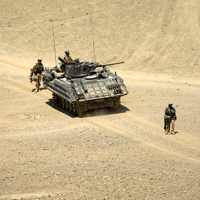
When the Netherlands and other European members of NATO invoked Article 5 of the North Atlantic Treaty after the attacks of Sept. 11, 2001, they almost certainly did not anticipate that, in doing so, they would find their armed forces engaged in a decade-long conflict in Afghanistan. The Article 5 declaration — holding that Sept. 11 was an attack on NATO’s collective security — was intended as a low-cost gesture of trans-Atlantic solidarity with the United States and the traumatized American people, rather than as an operational commitment to wage a protracted and frustrating conflict. But through NATO, European militaries […]
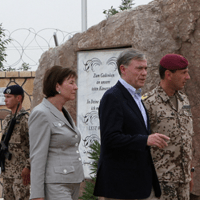
Last June, German President Horst Koehler, after visiting Afghanistan, called Germany’s participation in the war there vital to protecting long-term German interests. Koehler, whose role is primarily ceremonial, with little real political responsibility, told a German radio station that Germany’s export-driven economy and dependency on foreign trade meant that, “. . . in an emergency, military intervention is necessary to defend . . . trade routes, or prevent . . . regional instabilities that would certainly have negative effects on [Germany’s] trade, jobs and income.” He then urged Germans to “look at the reality” of Germany’s presence in Afghanistan and […]
This video, reportedly taken by an eyewitness to the deadly terrorist attack at the Domodedovo airport outside Russia on Monday, appeared on YouTube Monday afternoon. Initial reports indicate 35 people were killed in the bombing, with 152 others injured. The video depicts the immediate aftermath of the bombing, showing a smoke-filled area of the airport and the bodies of victims on the floor.
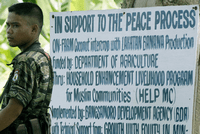
Editor’s note: This is the second of a two-part series on the Philippines peace process. Part I examined talks between the Philippine government and Maoist insurgents. Part II examines negotiations between Manila and the Moro Islamic Liberation Front. While the reopening of peace talks between the government of Philippine President Benigno Aquino and the country’s leading Muslim rebel group, the Moro Islamic Liberation Front (MILF), is a welcome development, doubts remain on whether the Philippines is ready to seal the deal. At a preliminary meeting held in January, the two parties agreed to hold formal exploratory talks on Feb. 9-10 […]
Two blasts hit the eastern Ukrainian town of Makiyivka on Jan. 20 and authorities were bracing for possible further attacks after unidentified attackers left a note at one of the explosion sites demanding millions of euros from the government. Ukraine’s security service is not ruling out terrorism. No one was hurt in the blasts.
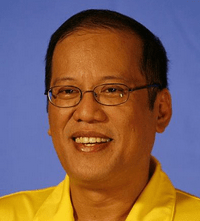
Editor’s note: This is the first of a two-part series on the Philippines peace process. Part I examines talks between the Philippine government and Maoist insurgents. Part II will examine negotiations between Manila and the Moro Islamic Liberation Front. Upholding an electoral promise, Philippine President Benigno Aquino has pushed for the reopening of peace talks with the Maoist rebels of the New People’s Army (NPA) and the Islamic rebels of the Moro Islamic Liberation Front (MILF). The prospects for the two peace tracks are beset with difficulties, although for different reasons, with the NPA talks in particular presenting daunting challenges. […]
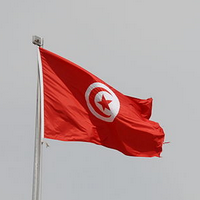
From the moment the first cell-phone videos of balaclava-clad young men sprinting away from police gunfire began to travel across cyberspace a few weeks ago, the mounting social unrest in Tunisia has caught many by surprise. Even longtime observers have had difficulty explaining how one of North Africa’s most prosperous and, arguably, most socially stable countries became a powder keg of political, economic and social fury. “I thought it could happen, but I didn’t believe it would happen so suddenly,” said Abdelwahab Hechiche, a political scientist at the University of South Florida who engaged in political activism for Tunisian independence […]
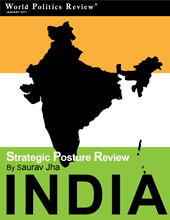
“The world is beating a path to your door,” said British Prime Minister David Cameron when visiting India last July. Cameron’s words were not mere rhetorical flourish: During the second half of 2010, the leaders of all the permanent U.N. Security Council members passed through New Delhi, underscoring India’s increasing importance in the global system. Significantly, all the visiting dignitaries either affirmed support for India’s claim to a permanent seat on the council or, in the case of Chinese Premier Wen Jiabao, made a statement “supporting India’s aspirations for a greater role in global affairs.” Indeed, the reordering of global […]
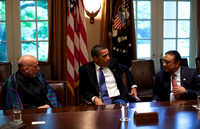
At the heart of the U.S. war in Afghanistan lies a striking and unresolved contradiction. While the U.S. has sent approximately 100,000 troops to this impoverished, landlocked country to combat a fearsome local insurgency, the actual focal point of U.S. policy in the region largely revolves around protecting and stabilizing a country just across Afghanistan’s eastern border: Pakistan. It’s an ironic but not altogether surprising strategy. After all, Pakistan remains home to Osama bin Laden, his key lieutenants and other terrorist organizations intent on striking American targets. The country maintains a significant nuclear capability, and its ongoing conflict with India […]
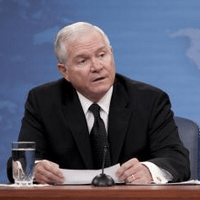
U.S. Defense Secretary Robert Gates unveiled his much-anticipated budget cuts last Thursday, signaling the beginning of the end of the decade-long splurge in military spending triggered by Sept. 11. Gates presented the package of cuts as being the biggest possible given the current international security landscape, warning that any deeper reductions could prove “potentially calamitous.” Frankly, I find that statement hard to swallow. How can America basically match the rest of the world’s defense spending combined, and then describe anything less as “potentially calamitous”? Clearly, given the “nation’s grim financial outlook,” as Gates himself put it, we’re going to have […]
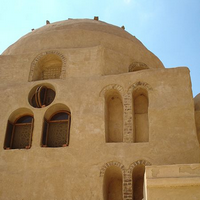
The holiday season has now ended, but not without leaving behind a trail of devastation and a rising sense of anguish among Christian communities in the Middle East. A series of deadly assaults and ominous threats — most dramatically the New Year’s church massacre in Alexandria, Egypt, and a threat from al-Qaida in Iraq to “open the doors of destruction and rivers of blood” upon Christians — have raised fears that Christianity may not survive in the region of its birth. The depth of the anxiety comes through in the words of Lebanon’s former-President Amin Gemayel, who declared, “What is […]
The New Year’s day bombing of a church in Alexandria, Egypt, has prompted frustration among many in the country’s Coptic Christian community and lead to several nights of angry street protests. The bombing was the worst in a decade and its aftermath is still being felt, with MENA, the official Egyptian news agency, reporting on Tuesday that the death toll had risen to 23.
